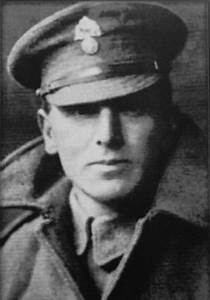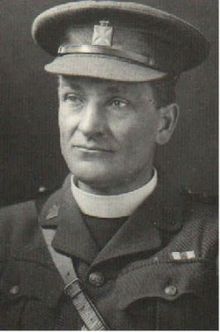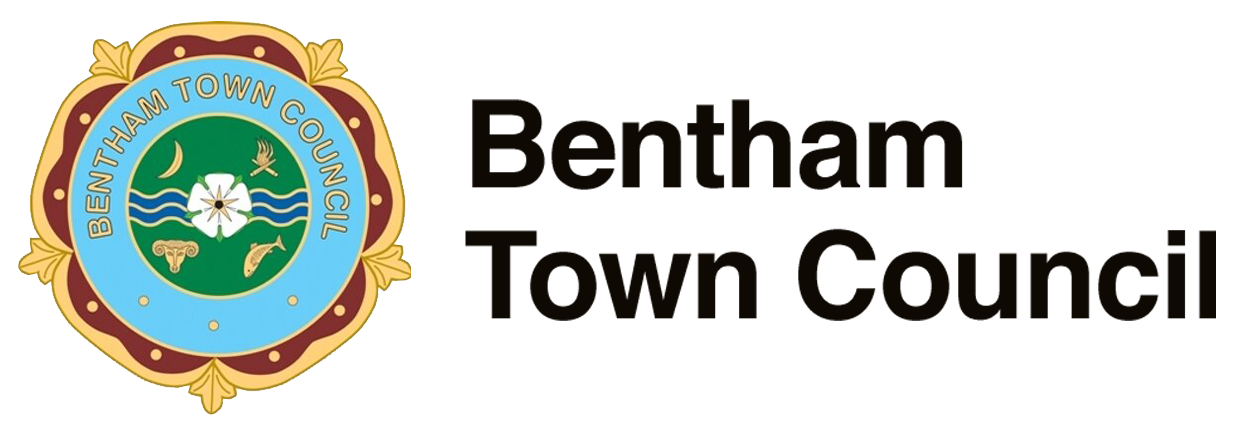Two First World War Victoria Cross recipients have links to Bentham.
Beside the Bentham war memorial on Millenium Square you can see the flag stones
placed in their honour at the centenary of the end of the war.
This page aims to tell you a little about them.

Charles Graham Robertson VC, MM
Charles Robertson was born on 4th July 1879 at 17 Millhouses, Wenning Avenue, High Bentham. His mother was Ellen Graham, a domestic servant, who was staying with her sister Hannah. Charles was illegitimate and was named Charles Prince Graham
(Prince probably refers to some sort of family connection).
At some point during the next two years he left Bentham and moved to Penrith to live with a childless aunt and uncle called James and Catherine Robertson. In the 1881 census he was named as Charles Prince Robertson but by 1891 he was known as Charles Graham Robertson (after his mother). He later moved to Dorking (Surrey) and was educated at Dorking High School progressing to become a booking hall clerk for the London and N.E. Railway Company. Charles enlisted in the 10th (Stockbrokers) Royal Fusiliers and joined the battalion in France on 19th November 1914.
Charles was awarded the Victoria Cross for his bravery at Poderhoek Chateau, Belgium on 8th/9thMarch 1918.
The citation reads: He repelled a strong attack by the enemy, realised that he was being cut off and sent for reinforcements, while remaining at his post with only one man, firing his Lewis Gun and killing large numbers of the enemy. No reinforcements arrived, so he withdrew, and was then forced to withdraw again to a defended post where he got on top of the parapet with a comrade, mounted his gun and continued firing. His comrade was almost immediately killed and he was severely wounded, but managed to crawl back with his gun, having exhausted his ammunition. Charles was discharged from the army on 19th December 1918 and resumed his work as a booking clerk on the railway. He died aged 75 at Dorking where he is buried.

The Revd.Theodore Bayley Hardy VC, DSO, MC
The Revd. Theodore Bayley Hardy, V.C., DSO, MC was the most decorated non-combatant of WW1 and Chaplain to the King. He was born at Barnfield House, Exeter, on 20th October 1863, the son of George and Sarah Hardy.
Hardy was ordained on the 18th December 1898, aged 34, and combined a career as a schoolmaster with duties as a curate. After teaching at Nottingham High School for 16 years he was appointed Headmaster of Bentham Grammar School in 1907. He was popular in the town but sadly in 1913 his wife fell ill and he resigned and was appointed Priest-in-Charge of Hutton Roof.
His wife died in June 1914 and subsequently he felt a calling for an army Chaplaincy. Time after time he applied to the Chaplaincy Department, but he was turned down as too old, he was 51.
His persistence finally paid off and he was accepted with the rank of Captain in the summer of 1916. Hardy subsequently became the Chaplain of the 8th Battalion the Lincolnshire Regiment and the 8th Battalion the Somersets. These two Battalions served alongside each other across the Western Front from Ypres to the Somme throughout the period 1916 to 1918.
It was during this period, Hardy, by his dogged determination to be with the soldiers at the front, proved to be a shining example of courage, humanity, bravery and loyalty. He was awarded a Distinguished Service Order on 31st July 1917, followed by a Military Cross on 4thOctober 1917 and finally his Victoria Cross at Rossingal Wood in the Somme in April 1918 …
For most conspicuous bravery and devotion to duty on many occasions.
Hardy was wounded in action whilst crossing a footbridge accompanying a fighting patrol of the 8th Somersets on 8th October 1918 on the Selle River near Cambrai. He was evacuated to No. 2 Red Cross Hospital at Rouen and died on the 18th October 1918;
His memorial stone was donated by public subscription.
